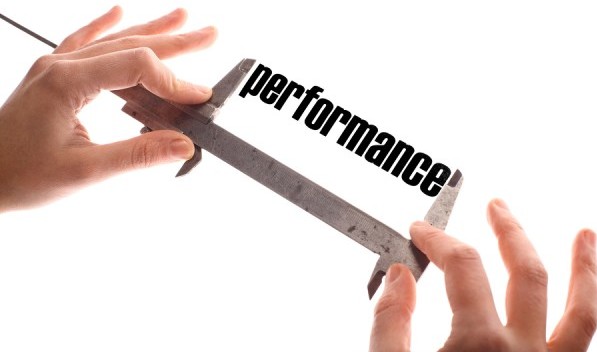When it comes to managing performance, managers have their work cut out for them. Few employees feel their manager excels at even the most basic performance management tasks.
Gallup’s State of the American Manager report noted that only 12% of employees strongly agree that their manager helps them set work priorities, and just 13% strongly agree that their manager helps them set performance goals.
In my work with managers and employees in companies, I hear this complaint a lot. Employees aren’t clear about their performance goals, and managers don’t feel they have enough time to spend giving feedback.
Managing performance is a huge challenge for even the best managers — to start, it requires hiring talented managers who can develop a strong culture. There are so many elements to align that even the best performance management strategy can get lost in the execution. What happens instead, is that executives sometimes default to bad performance management processes.
For the past 40 years, Gallup has studied high-performing organizations and advised leaders on how to develop and sustain them. In an excellent article, Great Managers Can Fix Broken Performance Management Systems, by Chris Groscurth, Gallup maintains that leaders can increase performance by being intentional about things like organizational alignment and clarity.
Globally, companies are scrambling to re-engineer the way they manage performance — but many of these initiatives have the wrong priorities.
Too many leaders rely on convoluted HR processes and rigid rating systems that are time-consuming and disengaging for both managers and employees to use. Though it’s important to evaluate performance, leaders need to understand that excellent performance management requires more than metrics.
To be effective, performance management requires streamlined processes, accurate and efficient metrics and — the frequently overlooked factor — highly talented managers. According to the Gallup article:
Great managers engage in ongoing performance management activities. Sustained high performance requires regular work on the manager’s part. These are some specific activities great managers make a habit of doing:
-
Goal setting: Employee performance goals should align with business strategies at all levels. Great managers set and tailor goals with individual employees — building ownership for organizational objectives among team members. Gallup recently found that 69% of employees who strongly agree that their manager helps them set performance goals are engaged, compared with 8% engagement among employees who strongly disagree with the statement.
-
Reliable and meaningful communication: Employees want their managers to be open and approachable. Consistent communication helps employees feel safe and supported, and it builds a productive workplace in which people feel comfortable enough to experiment, to challenge, to share information and to support one another. Great managers ensure healthy communication, which is a behavior that fosters engagement. Employees whose managers meet regularly with them are almost three times as likely to be engaged as employees whose managers don’t meet with them regularly.
-
Frequent discussions about responsibilities and accountability: Employees require more than a written job description — they need to completely understand their role and how it aligns with others’ work, particularly during times of change. Though helping employees understand their responsibilities might seem easy, it takes talent to do it right. Great managers don’t just tell employees what’s expected of them. They also frequently talk with employees about their responsibilities and progress. Instead of saving performance conversations for annual reviews, they provide ongoing feedback, which engages employees. Gallup analysis from 2013 shows that 50% of employees who strongly agree that their manager holds them accountable for performance were engaged, compared with 3% who strongly disagree.
Managing performance is the biggest challenge talented managers face. It requires much more than just metrics. Nothing is more important for driving employee engagement.
Is this happening where you work? If you’re a manager, are you engaging with your people in these three ways? Or is there more emphasis on metrics and performance ranking? I’d love to hear from you. I can be reached here or on LinkedIn.

Did You Enjoy This Article?
Join thousands of other smart business owners like yourself & get our Proffittable Times newsletter.
It's filled with actionable content you can apply immediately.
Sign up now to get started!
– Coach Nancy










